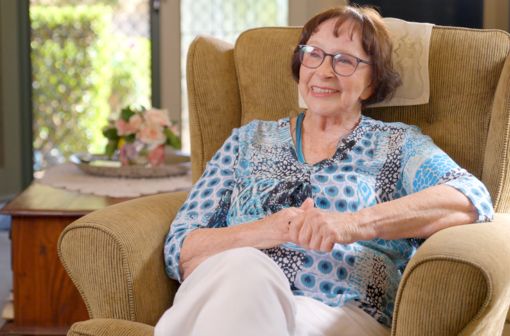“There’s that misconception that Aboriginal companies don’t have the capability within business or we don’t have the historical track record. It’s only in the last 10 years or so that the sector has emerged in supplying diversity.” – Mitchell Ross.
Mitchell Ross, co-founder and CEO of Muru Office Supplies, says he’s helping create a pathway for future generations.
Muru is a national Indigenous-owned and operated office products company that actively supports the development and promotion of Indigenous communities, providing a wide range of stationery and supplies, the proceeds of which are donated back to community.
Mitchell started Muru in 2012 with the aim to create a business that could give back and support others.
“Muru means ‘pathway’ in the language of the coastal Sydney region,” Mitchell says. “It was predominantly to put myself in a position to create a business where I can create pathways for the next generation of Aboriginal people.”

“How can I make a difference?”
Having grown up in inner Sydney and witnessed family and friends struggle through hardships, Mitchell says making a difference in people’s lives was an incredibly important founding principle of Muru.
“Personally, I had a good upbringing, both my parents had great jobs,” Mitchell says. “But I witnessed a lot of hardships from others. You go to the same school, grow up in the same community as people who are in vastly different situations to you. So that inspired me to say “how can I make a difference?” and level the playing field I guess.”
Muru’s partnership with Australian Unity is primarily through providing a wide range of branded stationery products and office supplies.
Mitchell says Australian Unity has been extremely supportive in terms of product uptake, which is a huge positive for Muru, as the company donates 15 per cent of profits back to Indigenous communities.
Last financial year, Muru donated just under $52,000 to indigenous communities. Even more impressively, Mitchell says Muru is now on track to contribute $75,000-$80,000 this financial year, with the money predominantly going to Indigenous community programs that are in health, well-being, and education.
“Obviously the more products we do sell, the more funds we can allocate to give back,” Mitchell says.
Creating more opportunities
By working with Australian Unity, Mitchell says Muru is helping break down stereotypes and show the broader Australian community how Indigenous businesses add real value to the economy.
It also assists in growing Muru, which Mitchell believes will then create further employment opportunities for Indigenous people.
“This hopefully then has a ripple effect so their kids have a great environment to grow up in and see their parents with good jobs,” Mitchell says. “And that hopefully inspires them to want to get a good education and get a great job for themselves.
“There’s that misconception that Aboriginal companies don’t have the capability within business or we don’t have the historical track record. It’s only in the last 10 years or so that the sector has emerged in supplying diversity.
“It’s just starting to show that there is that capability there. I sometimes speak to corporates and they may have had a bad experience in the past with an Aboriginal-owned business; it’s really no different to having a bad experience with a non-Aboriginal owned business, but sometimes that creates a bit of a risk and they’re a bit more cautious.
“The biggest challenge we face now is change, and I think every business faces that. A company that has been with a supplier for a long period of time, convincing them to change over and buy from you, every business faces that challenge.”
A blueprint for Reconciliation
National Reconciliation Week (May 27-June 3) is a time for all Australians to discover more about our shared cultures and histories, and to understand how everyone can help with Reconciliation in Australia.
Australian Unity launched its Reconciliation Action Plan (RAP) to affirm our commitment to build strong and respectful relationships with First Nation peoples, communities and businesses. The RAP outlines key actions across the business that will provide practical support in progressing Reconciliation in Australian Unity and the broader community.
The theme for Reconciliation Week 2019 is “Grounded in Truth – walk together with courage” and Mitchell says he’s hopeful that relationships like the one Muru has with Australian Unity will help create a blueprint for Reconciliation.
“It’s a way for us to all come together,” he says. “I think it’s a thing that over time, as more organisations partake in those activities, the more that Reconciliation will start to take hold. You don’t go through one Reconciliation Week and everything is changed, it takes time, and organisations need to commit long-term to always supporting that.”


.jpg)